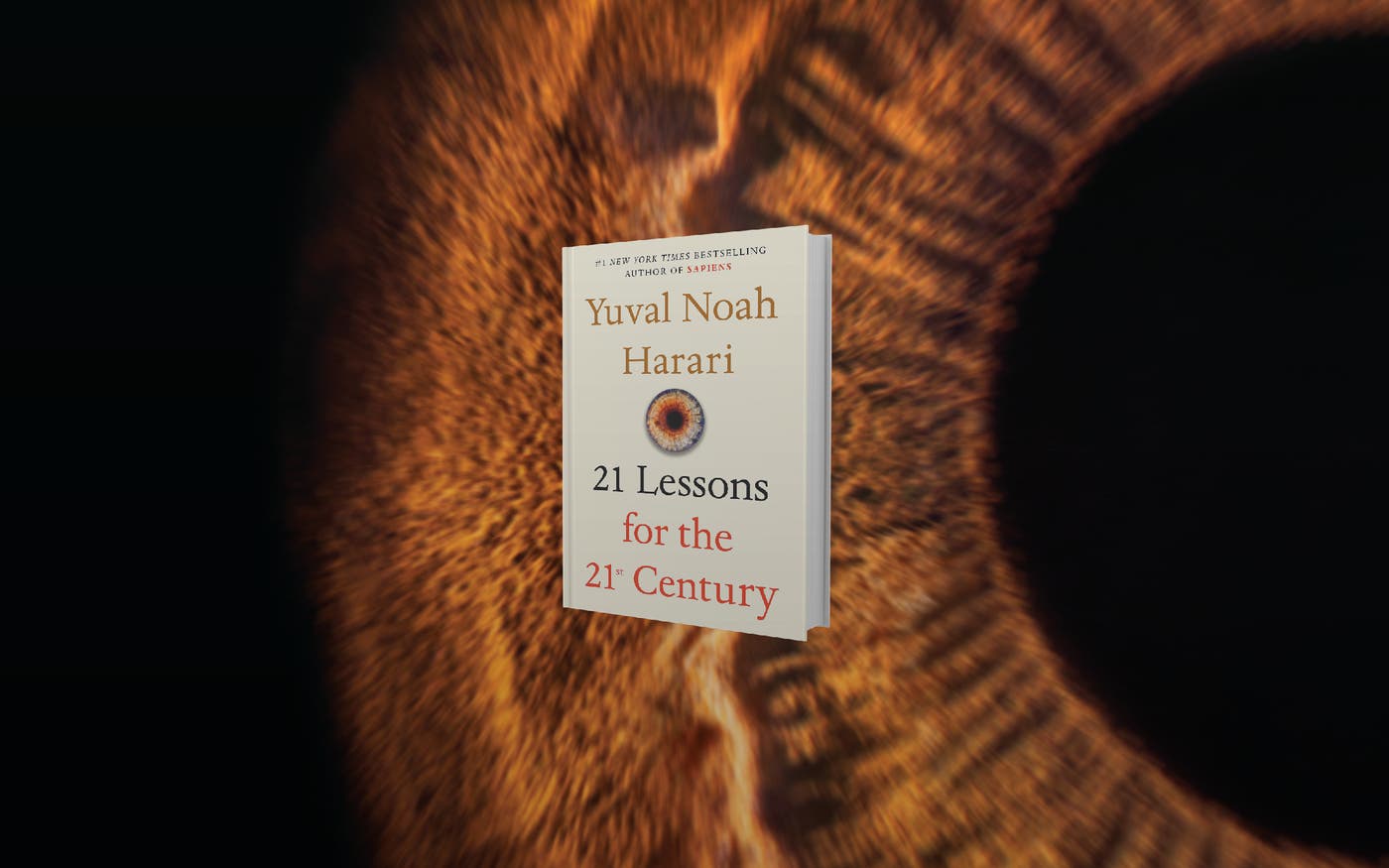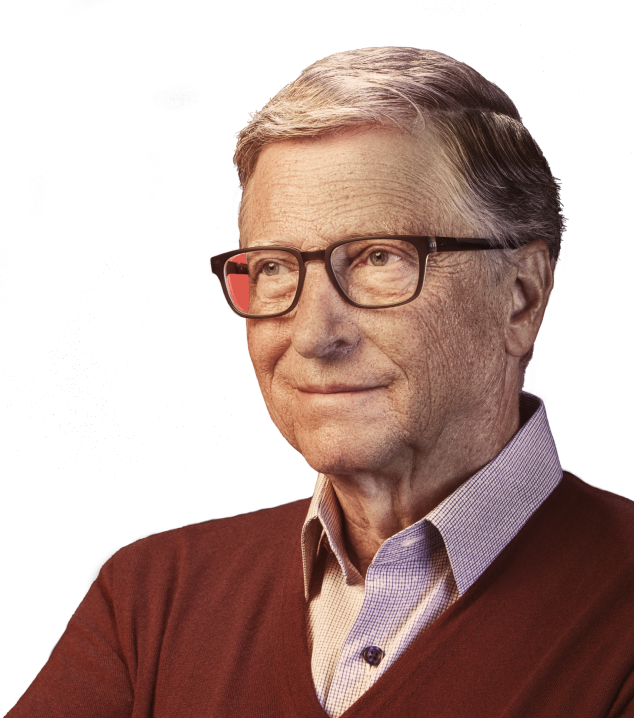
PAST, FUTURE, PRESENT
A guide to worrying in the 21st century
Yuval Noah Harari has written another thought-provoking book.

The human mind wants to worry. This is not necessarily a bad thing—after all, if a bear is stalking you, worrying about it may well save your life. Although most of us don’t need to lose too much sleep over bears these days, modern life does present plenty of other reasons for concern: terrorism, climate change, the rise of A.I., encroachments on our privacy, even the apparent decline of international cooperation.
In his fascinating new book 21 Lessons for the 21st Century, the historian Yuval Noah Harari creates a useful framework for confronting these fears. While his previous best sellers, Sapiens and Homo Deus, covered the past and future respectively, his new book is all about the present. The trick for putting an end to our anxieties, he suggests, is not to stop worrying. It’s to know which things to worry about, and how much to worry about them. As he writes in his introduction: “What are today’s greatest challenges and most important changes? What should we pay attention to? What should we teach our kids?”
These are admittedly big questions, and this is a sweeping book. There are chapters on work, war, nationalism, religion, immigration, education, and 15 other weighty matters. But its title is a misnomer. Although you will find a few concrete lessons scattered throughout, Harari mostly resists handy prescriptions. He’s more interested in defining the terms of the discussion and giving you historical and philosophical perspective.
He deploys, for example, a clever thought experiment to underscore how far humans have come in creating a global civilization. Imagine, he says, trying to organize an Olympic Games in 1016. It’s clearly impossible. Asians, Africans and Europeans don’t know that the Americas exist. The Chinese Song Empire doesn’t think any other political entity in the world is even close to being its equal. No one even has a flag to fly or anthem to play at the awards ceremony.
The point is that today’s competition among nations—whether on an athletic field or the trading floor—“actually represents an astonishing global agreement.” And that global agreement makes it easier to cooperate as well as compete. Keep this in mind the next time you start to doubt whether we can solve a global problem like climate change. Our global cooperation may have taken a couple of steps back in the past two years, but before that we took a thousand steps forward.
So why does it seem as if the world is in decline? Largely because we are much less willing to tolerate misfortune and misery. Even though the amount of violence in the world has greatly decreased, we focus on the number of people who die each year in wars because our outrage at injustice has grown. As it should.
Here’s another worry that Harari deals with: In an increasingly complex world, how can any of us have enough information to make educated decisions? It’s tempting to turn to experts, but how do you know they’re not just following the herd? “The problem of groupthink and individual ignorance besets not just ordinary voters and customers,” he writes, “but also presidents and CEOs.” That rang true to me from my experience at both Microsoft and the Gates Foundation. I have to be careful not to fool myself into thinking things are better—or worse—than they actually are.
What does Harari think we should do about all this? He offers some practical advice, including a three-prong strategy for fighting terrorism and a few tips for dealing with fake news. But his big idea boils down to this: Meditate. Of course he isn’t suggesting that the world’s problems will vanish if enough of us start sitting in the lotus position and chanting om. But he does insist that life in the 21st century demands mindfulness—getting to know ourselves better and seeing how we contribute to suffering in our own lives. This is easy to mock, but as someone who’s taking a course on mindfulness and meditation, I found it compelling.
As much as I admire Harari and enjoyed 21 Lessons, I didn’t agree with everything in the book. I was glad to see the chapter on inequality, but I’m skeptical about his prediction that in the 21st century “data will eclipse both land and machinery as the most important asset” separating rich people from everyone else. Land will always be hugely important, especially as the global population nears 10 billion. Meanwhile, data on key human endeavors—how to grow food or produce energy, for example—will become even more widely available. Simply having information won’t offer a competitive edge; knowing what to do with it will.
Similarly, I wanted to see more nuance in Harari’s discussion of data and privacy. He rightly notes that more information is being gathered on individuals than ever before. But he doesn’t distinguish among the types of data being collected—the kind of shoes you like to buy versus which diseases you’re genetically predisposed to—or who is gathering it, or how they’re using it. Your shopping history and your medical history aren’t collected by the same people, protected by the same safeguards, or used for the same purposes. Recognizing this distinction would have made his discussion more enlightening.
I was also dissatisfied with the chapter on community. Harari argues that social media including Facebook have contributed to political polarization by allowing users to cocoon themselves, interacting only with those who share their views. It’s a fair point, but he undersells the benefits of connecting family and friends around the world. He also creates a straw man by asking whether Facebook alone can solve the problem of polarization. On its own, of course it can’t—but that’s not surprising, considering how deep the problem cuts. Governments, civil society, and the private sector all have a role to play, and I wish Harari had said more about them.
But Harari is such a stimulating writer that even when I disagreed, I wanted to keep reading and thinking. All three of his books wrestle with some version of the same question: What will give our lives meaning in the decades and centuries ahead? So far, human history has been driven by a desire to live longer, healthier, happier lives. If science is eventually able to give that dream to most people, and large numbers of people no longer need to work in order to feed and clothe everyone, what reason will we have to get up in the morning?
It’s no criticism to say that Harari hasn’t produced a satisfying answer yet. Neither has anyone else. So I hope he turns more fully to this question in the future. In the meantime, he has teed up a crucial global conversation about how to take on the problems of the 21st century.
This post originally appeared in the New York Times Book Review.

